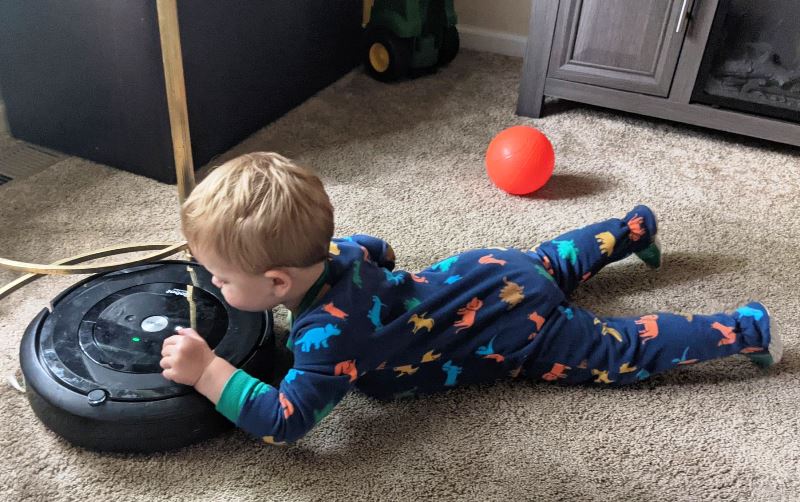
The child does not follow the law of the least effort, but a law directly contrary. He uses an immense amount of energy over an unsubstantial end, and he spends, not only driving energy, but intensive energy in the exact execution of every detail.
—Maria Montessori
The Secret of Childhood, p. 204.
The Secret of Childhood, p. 204.
Watching my friend’s toddler the other day, I discovered that he is fascinated by their robot vacuum. He has been preoccupied with it for months. When he began crawling, he constantly crawled over to the charging station to push the button. He would watch the vacuum go around the room, often chasing it as fast as he could crawl, laughing and giggling along the way. Now that he can walk, he is no longer content to simply push the button; instead, he picks up and carries the vacuum, placing it in other areas of the house. This is no easy feat as the vacuum easily weighs 7–8 pounds, almost one-third of his body weight! What makes young children pick up and carry heavy objects or attempt “adult” jobs like emptying the dishwasher? Montessori called this the exertion of maximum effort and said that the greater the amount of effort involved in work, the greater the sense of satisfaction. (Montessori, 2012) Children truly need this big, heavy work. It’s as if, once they are mobile, they need to work. The worst thing an adult can do is to stop the child by saying “I’ll do it” or “It’s too heavy.” Instead, we should find work that satisfies the child’s inner drive.

